35 body temperature check stations established around NSYSU campus
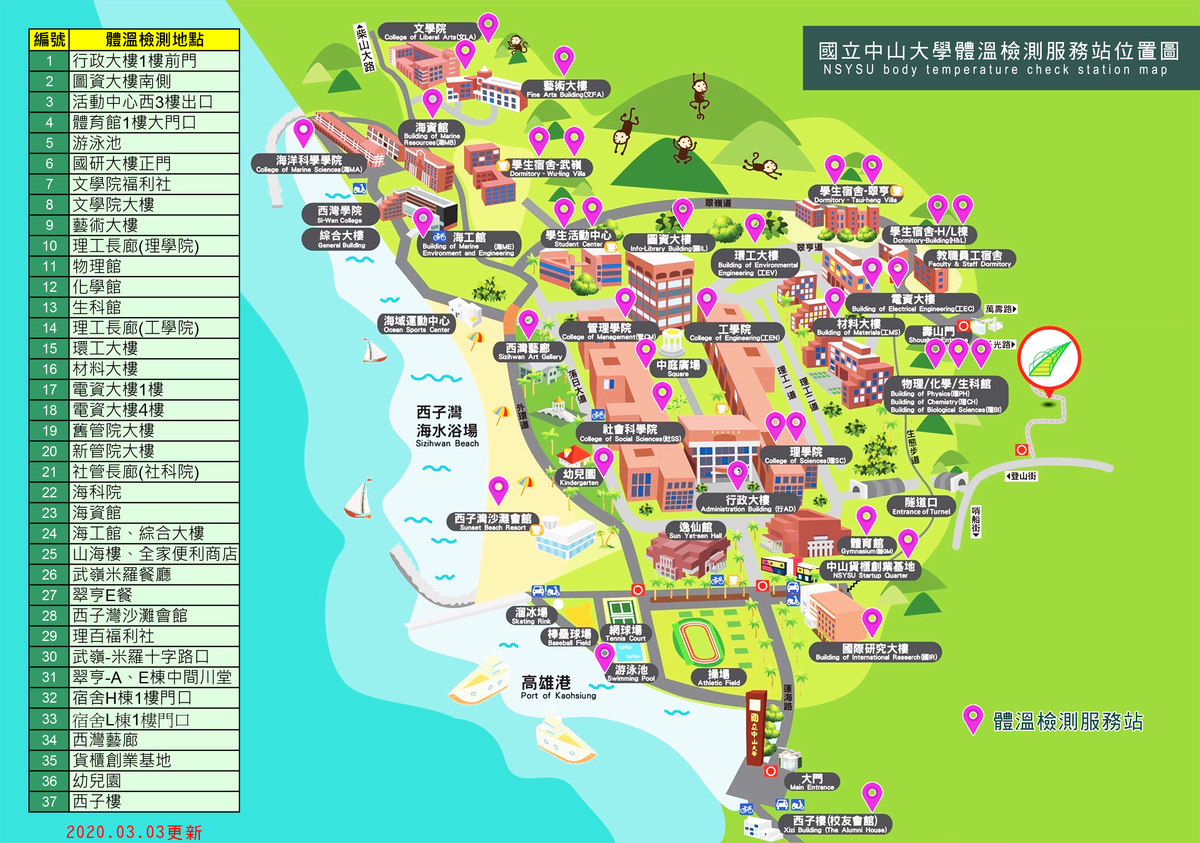
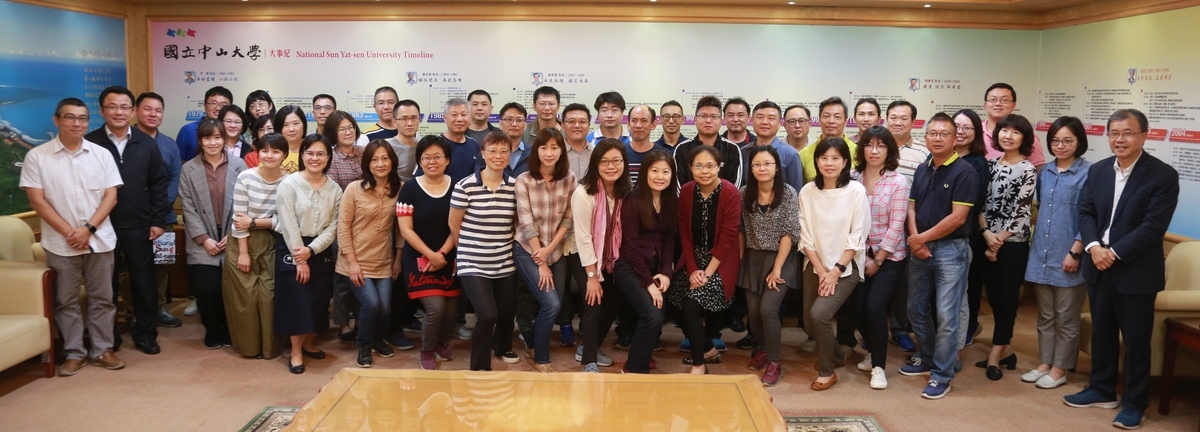
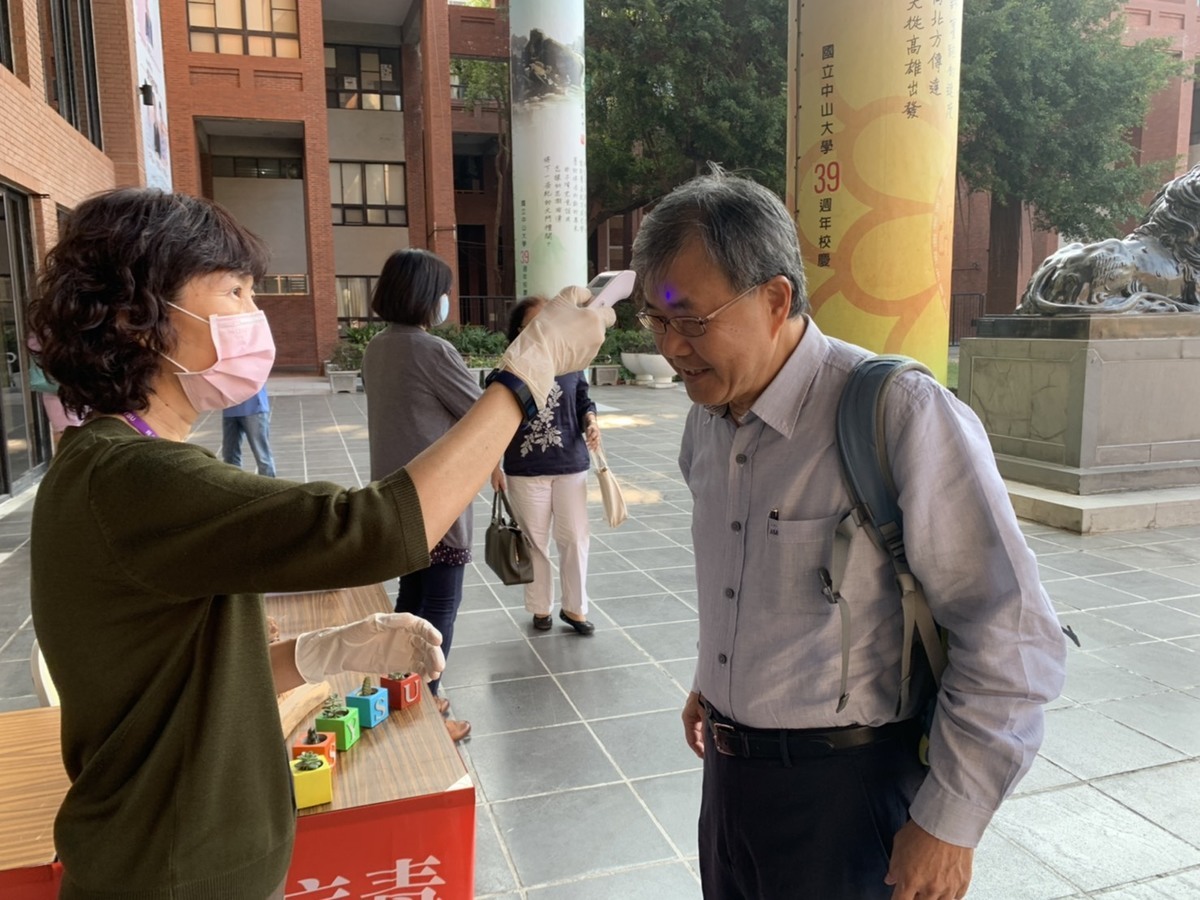
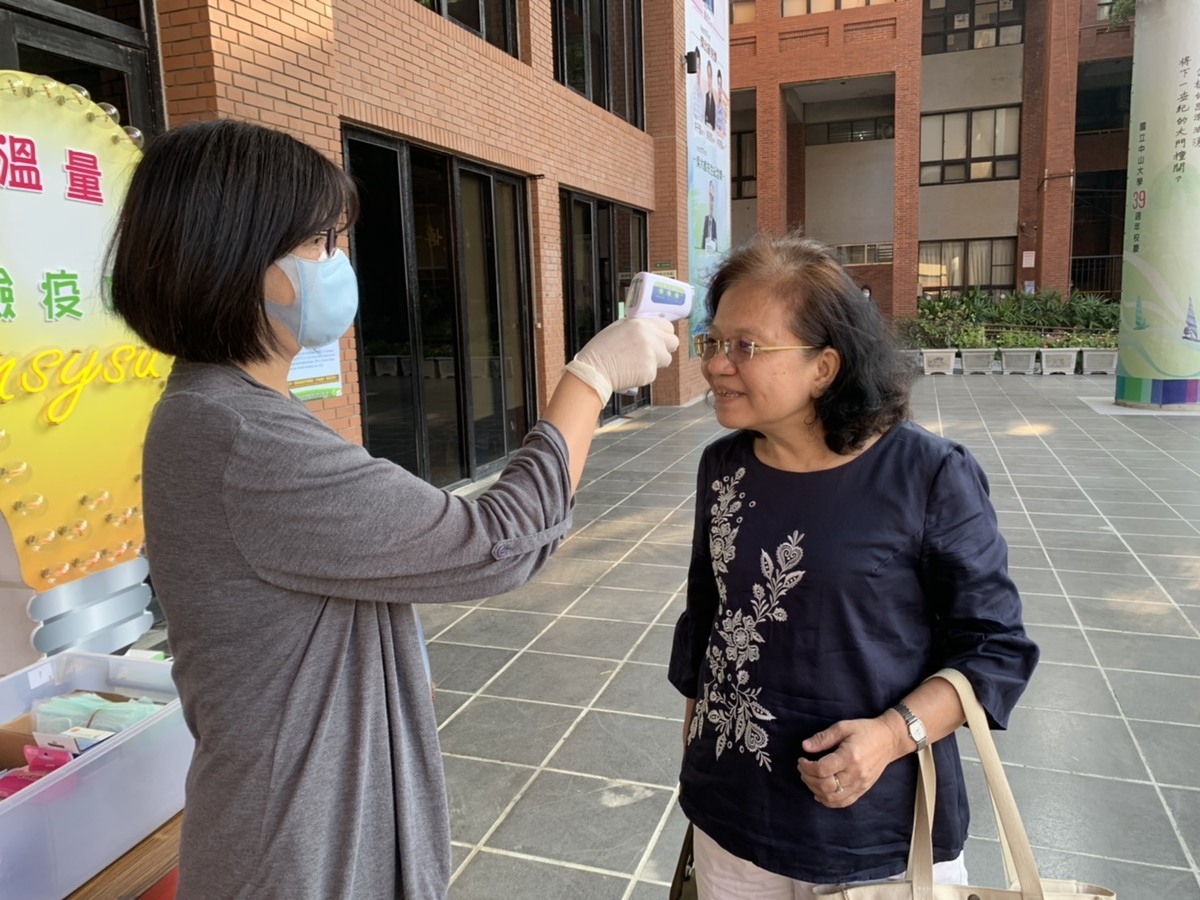
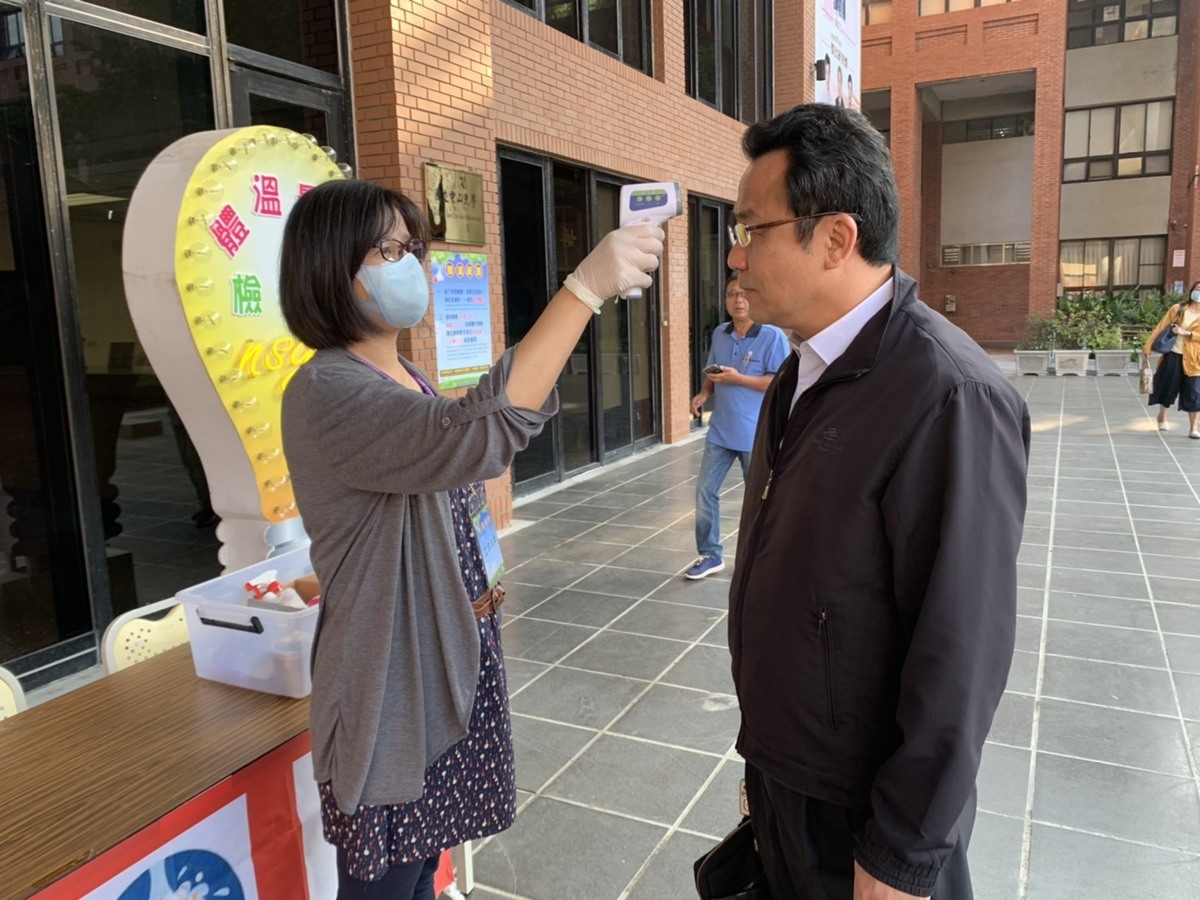
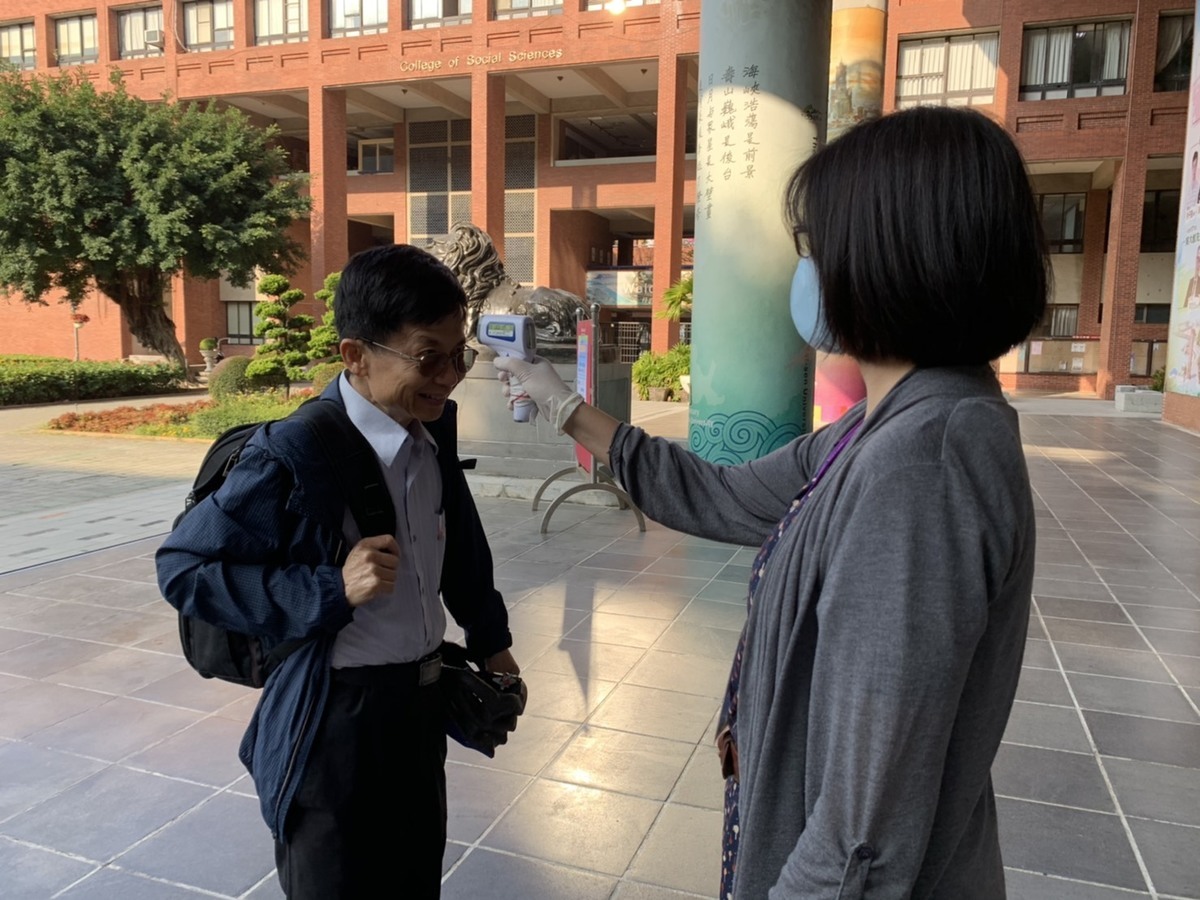
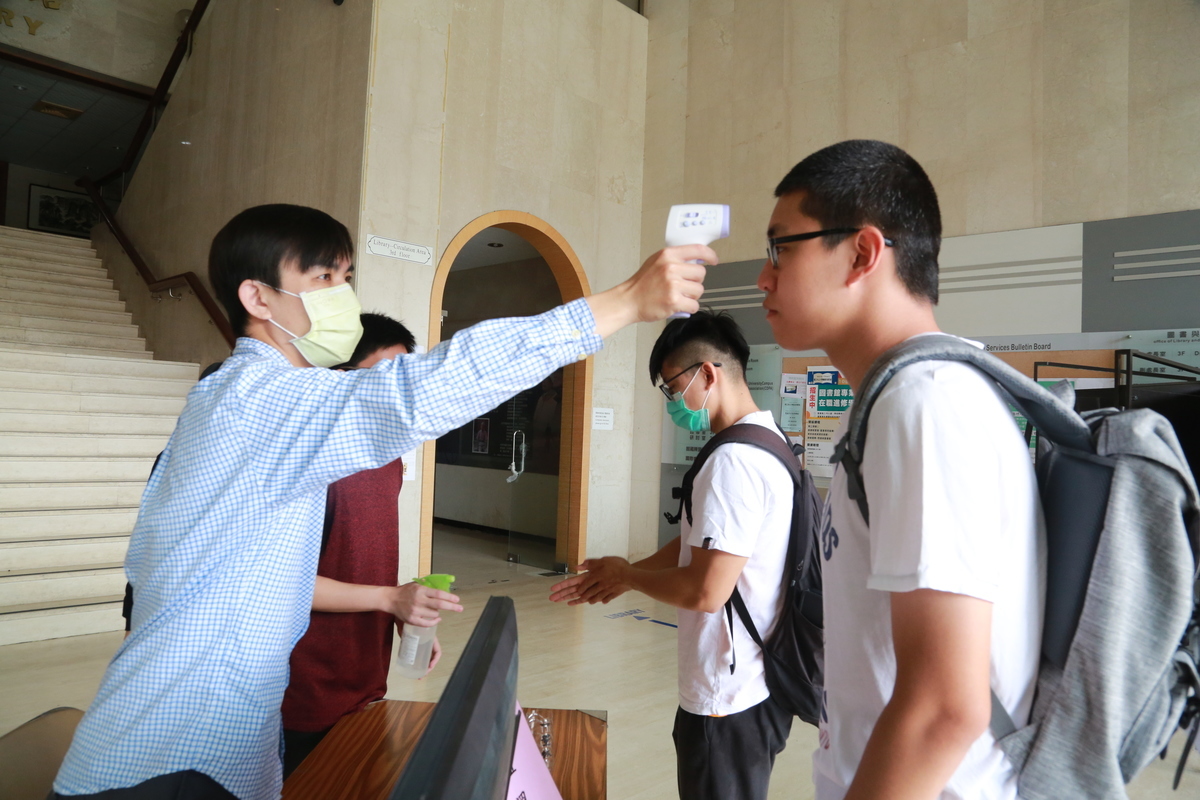
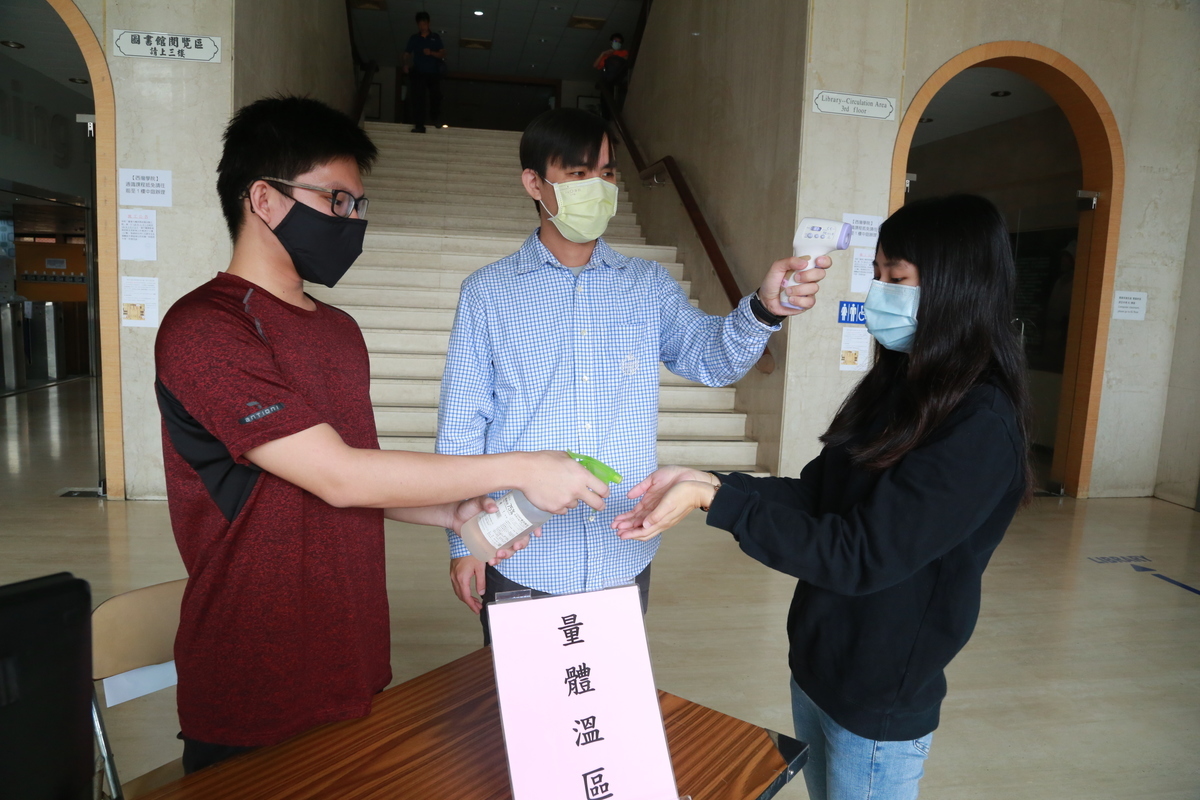
Have your temperature taken before you start class or work! To align with the recommendation of the Ministry of Education and with the Executive Yuan upgrading the Central Epidemic Command Center to a first-level agency, the NSYSU Working Group for Epidemic Prevention decided to provide nearly 70 ear thermometers and 3 infrared thermographs for use on campus. Because the campus is rather crowded, 35 body temperature check stations were established at the entrances to the buildings of the University. The staff measure the temperature of every person entering the building. If you have a normal body temperature, you will get an identification sticker to put on your clothes; the sticker’s validity is one day. If your body temperature is over 37.5°C, you are not allowed to enter and should contact the Physical and Health Division, NSYSU. If you cough or sneeze despite normal body temperature, you can only enter with a face mask on.
NSYSU Working Group for Epidemic Prevention decided that students, teachers and staff entering the Library, Administration Building, dormitories (Wuling, Tsuiheng or Female Dormitory), International Building, and the buildings of every college shall have their temperature measured. The body temperature check stations are distributed across the campus facilities and only one or a few entrances to every building are available. Those with normal body temperature will get an identification sticker. Colors of the stickers differ according to the days of the week. Every day before midday the number of persons with abnormal temperature is reported to the Ministry of Education. What is more, departments and institutes help teachers ensure that the students fulfill the obligation of home quarantine and health self-management.
NSYSU Working Group for Epidemic Prevention also reminds the students, staff and teachers that those who recently visited or transferred in China, Macau or Hong Kong or visited Korea, Italy or Iran, are required to undergo 14-day home quarantine and are allowed to return to school only after 14 days; those with travel history to a country or area under travel notice Level 1: Watch or Level 2: Alert (according to international travel health notice standards), must conduct health self-management for 14 days after return to Taiwan and are allowed to return to school only after 14 days. If one’s family or roommates have visited or lived in the above-mentioned countries in the past 14 days, it is recommended he/she conducts health self-observation for 14 days.
For students’ and teachers’ safety, before the start of the new semester, NSYSU organized the disinfection of all facilities on campus, including common spaces in dormitories and classrooms. In the spring semester, the classroom windows will have to be open at all times for ventilation; classrooms without windows will not be used. Tables, microphones, computer mice and keyboards will be disinfected before every lecture. Seats and strap handles of the campus bus will be disinfected after every ride. Bottles of hand sanitizer are placed by building entrances and elevators and liquid hand soap is provided in bathrooms for personal hygiene.
NSYSU Working Group for Epidemic Prevention decided that students, teachers and staff entering the Library, Administration Building, dormitories (Wuling, Tsuiheng or Female Dormitory), International Building, and the buildings of every college shall have their temperature measured. The body temperature check stations are distributed across the campus facilities and only one or a few entrances to every building are available. Those with normal body temperature will get an identification sticker. Colors of the stickers differ according to the days of the week. Every day before midday the number of persons with abnormal temperature is reported to the Ministry of Education. What is more, departments and institutes help teachers ensure that the students fulfill the obligation of home quarantine and health self-management.
NSYSU Working Group for Epidemic Prevention also reminds the students, staff and teachers that those who recently visited or transferred in China, Macau or Hong Kong or visited Korea, Italy or Iran, are required to undergo 14-day home quarantine and are allowed to return to school only after 14 days; those with travel history to a country or area under travel notice Level 1: Watch or Level 2: Alert (according to international travel health notice standards), must conduct health self-management for 14 days after return to Taiwan and are allowed to return to school only after 14 days. If one’s family or roommates have visited or lived in the above-mentioned countries in the past 14 days, it is recommended he/she conducts health self-observation for 14 days.
For students’ and teachers’ safety, before the start of the new semester, NSYSU organized the disinfection of all facilities on campus, including common spaces in dormitories and classrooms. In the spring semester, the classroom windows will have to be open at all times for ventilation; classrooms without windows will not be used. Tables, microphones, computer mice and keyboards will be disinfected before every lecture. Seats and strap handles of the campus bus will be disinfected after every ride. Bottles of hand sanitizer are placed by building entrances and elevators and liquid hand soap is provided in bathrooms for personal hygiene.
Click Num:
Share
